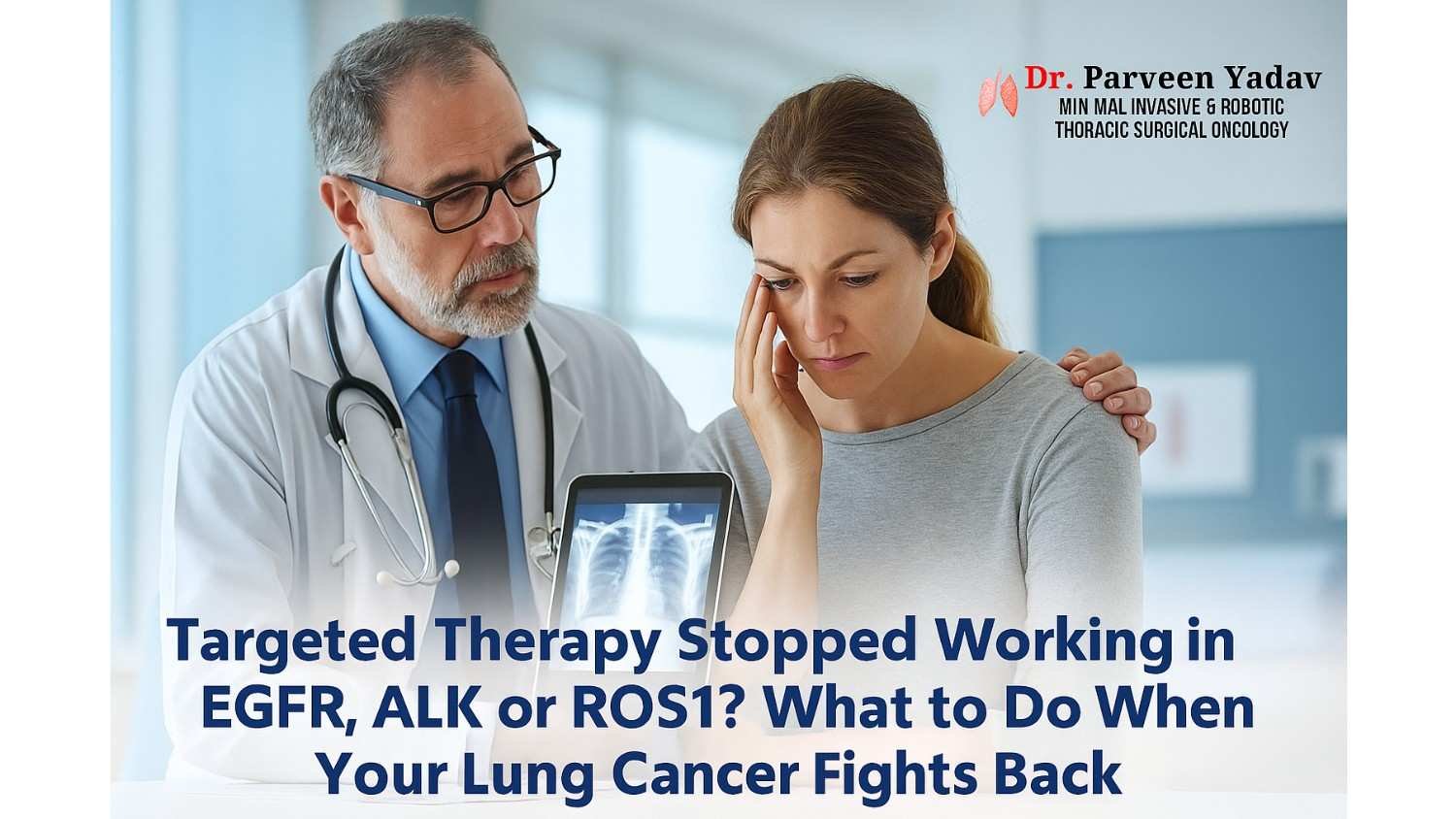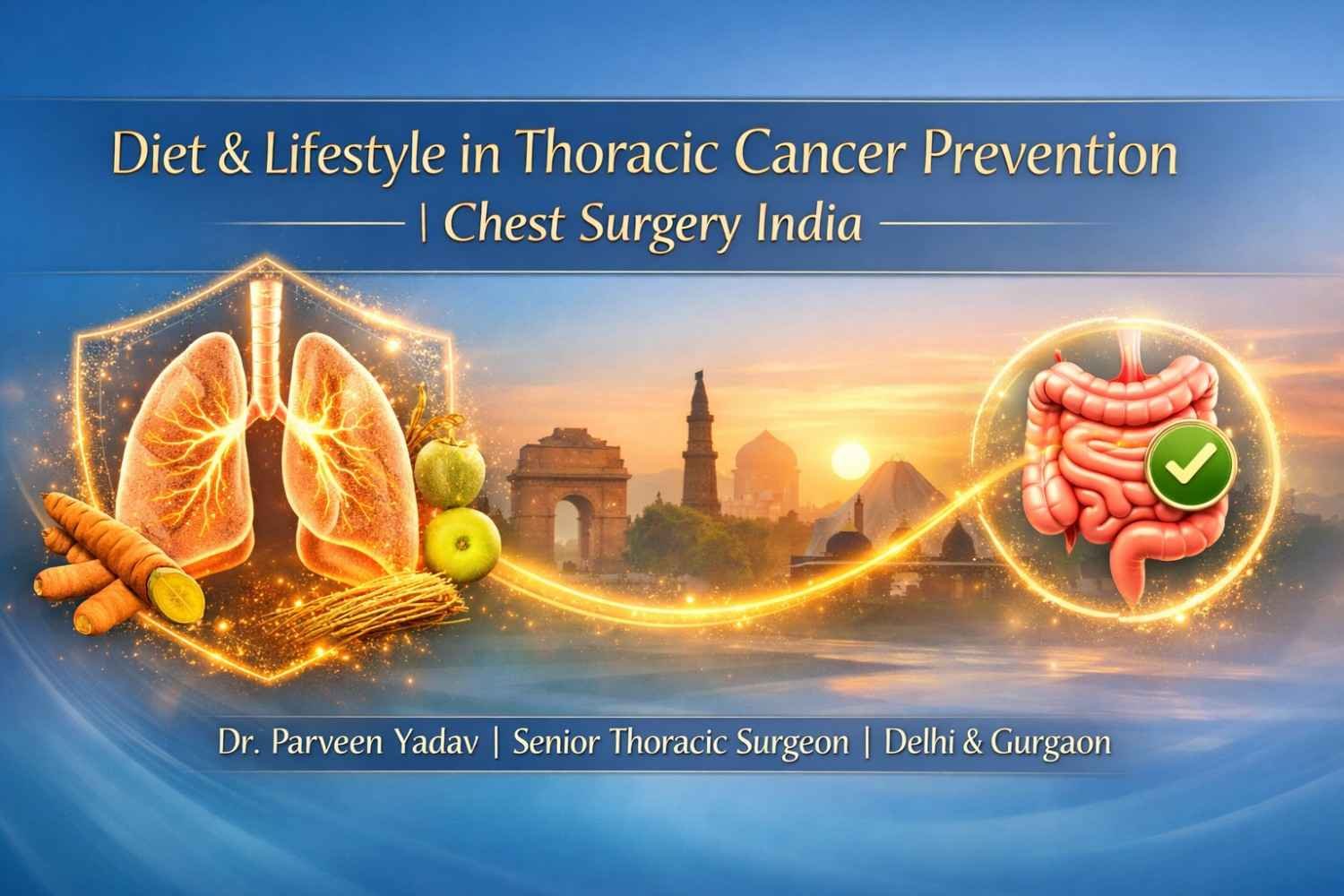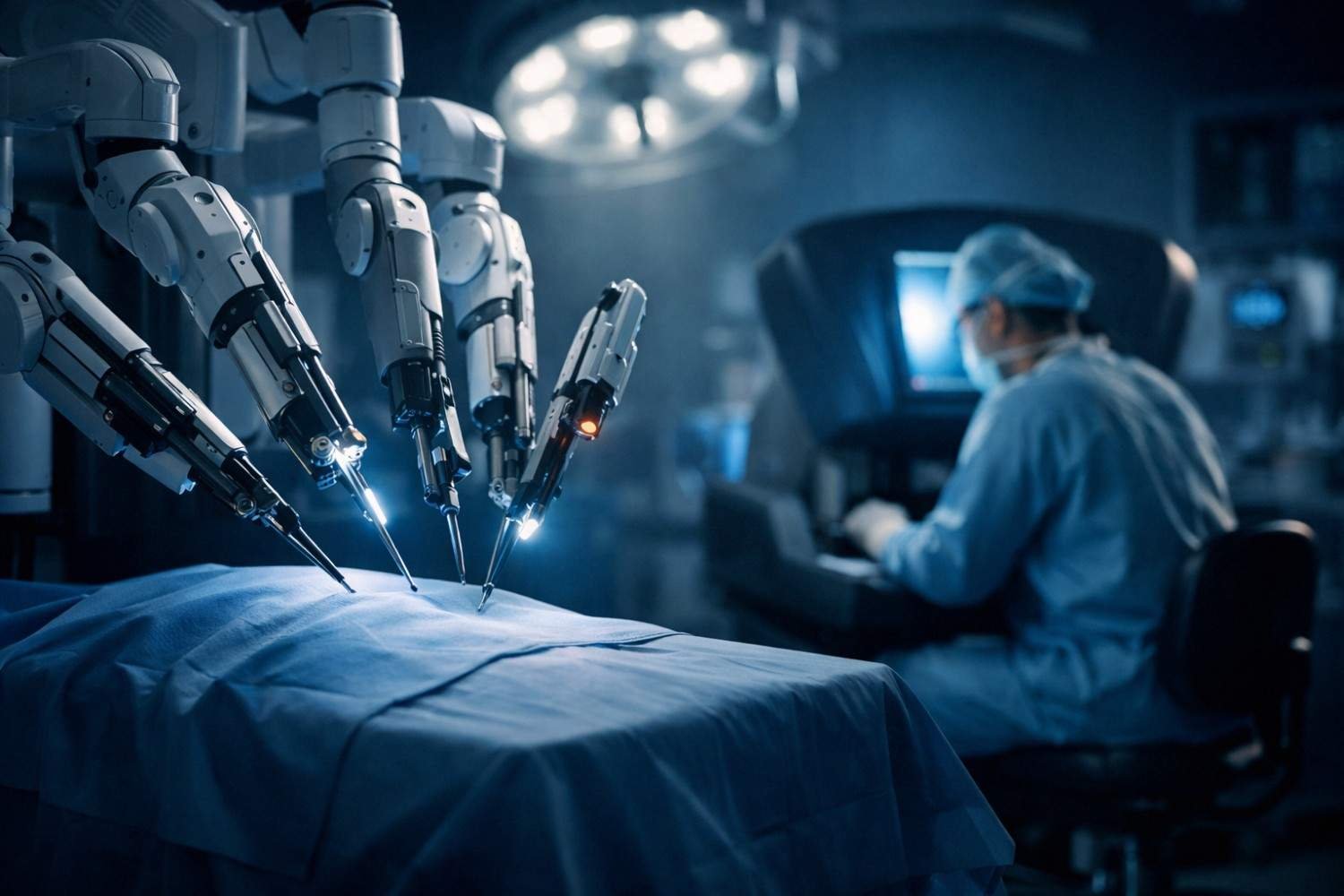

Hearing that the targeted therapy medicine that has been controlling your lung cancer is no longer working can feel like a punch to the gut. It's a moment filled with fear, confusion, and a deep sense of disappointment. After placing so much hope in what felt like a miracle drug, this news can be devastating. Please know that these feelings are completely normal and valid.
But it is crucial to understand this: this is not the end of the road. This is a known and expected turn in the journey of treating advanced lung cancer. Your cancer has not outsmarted modern medicine; it has simply taken a detour that oncologists have seen before and have a plan for. Think of this not as a setback but as the next step in a manageable, long-term treatment strategy. There is a clear path forward, and this guide is here to walk you through it, step-by-step, in simple terms.
To take control of the situation, it first helps to understand what is happening inside your body. The reason your targeted therapy drug has stopped working is a process called "acquired resistance." It's a clever survival trick that cancer cells learn over time.
Think of your specific lung cancer (EGFR, ALK, or ROS1 positive) as a locked room. The cancer needs to get out of this room to grow and spread. Your targeted therapy drug—a Tyrosine Kinase Inhibitor or TKI—is like a special key that perfectly fits the lock (the EGFR, ALK, or ROS1 protein) and keeps the door shut, stopping the cancer's growth.
For many months or even years, this key works beautifully. But cancer is smart and wants to survive. Over time, it learns how to get around the lock. This is acquired resistance. It's not your fault, and it doesn't mean the treatment has failed. It's a well-understood challenge that cancer specialists anticipate and have strategies to overcome.
There are two main ways the cancer learns to beat the drug:
Understanding which of these two things has happened is the most important step in deciding your next treatment.
Knowing what to do next can turn fear into a feeling of control. Here is a clear, 3-step action plan for you and your family to discuss with your oncologist.
You cannot fight an enemy you don't understand. Before starting any new treatment, your doctor needs to investigate how your cancer has changed. This means a new biopsy is essential to get a fresh look at the tumor's genetic makeup.
In the past, this always meant an invasive procedure to take a tissue sample. But today, there is a revolutionary and much simpler option available in India: the liquid biopsy.
A liquid biopsy is a simple blood test. It works by detecting tiny fragments of DNA that the cancer cells shed into your bloodstream. For a patient who has already been through the discomfort of a tissue biopsy, the option of a non-invasive blood test can be a huge relief. This advanced test can identify the exact resistance mutation your cancer has developed, such as the common EGFR T790M mutation or the more complex C797S mutation, which tells your doctor precisely which treatment to use next.
This technology is now available across India, with costs typically ranging from ₹20,000 to ₹50,000. Some labs offer comprehensive panels for around ₹33,000.
Once the biopsy results are in, your oncologist can create a personalized attack plan. The options will depend on your cancer type and the specific resistance mechanism found.
This is perhaps the most important message of hope, especially in the Indian context. The newest and most advanced cancer drugs can cost lakhs of rupees every month, putting them out of reach for most families.
Clinical trials are the solution to this problem.
A clinical trial is a research study that gives patients access to the latest, most innovative treatments, often completely free of cost. By participating, you not only get a chance to receive a cutting-edge drug that may not be available otherwise but also are monitored incredibly closely by top cancer experts.
This is not a vague hope for the future. These trials are happening right now in India. For example, there are active clinical trials in cities like Delhi for EGFR-positive patients whose cancer has progressed on Osimertinib. These trials offer the next generation of targeted therapies combined with chemotherapy at zero cost to the patient. Asking your oncologist about clinical trials is one of the most powerful steps you can take.
Dealing with cancer is not just a physical battle; it's an emotional marathon for both the patient and the family. It is vital to care for your mental and emotional well-being with the same dedication you give to your medical treatment.
You are not the first person to walk this path. Hearing from others who have been in your shoes can make the journey feel less lonely.
You don't have to carry this burden alone. India has a growing network of support systems designed to help you and your family.
We have covered a lot of information, and it can feel overwhelming. But the key message is one of hope and action. When a targeted therapy stops working, it is not a dead end. It is a crossroad, and there are clear, well-marked paths to take.
The most important thing you can do right now is to take this information to your oncologist. Have an open conversation about performing a new biopsy (especially a liquid biopsy), discuss the different treatment options based on the results, and ask specifically about clinical trials that you may be eligible for.
You have a plan. You have options. Your next step starts today.

18+ Yrs Exp | 5,700+ Thoracic & Robotic Cancer Surgeries
Dr. Parveen Yadav is a Director and Senior Consultant in Thoracic and Surgical Oncology, specializing in minimally invasive and robotic lung and esophageal surgeries, with advanced training from AIIMS and Tata Memorial Hospital.
View Full Profile Pain After Thoracic Surgery: Tips for Smooth Recovery
Pain After Thoracic Surgery: Tips for Smooth Recovery
 Diet & Lifestyle for Thoracic Cancer Prevention | Dr. Parveen Yadav
Diet & Lifestyle for Thoracic Cancer Prevention | Dr. Parveen Yadav
 Robotic Thoracic Surgery: How Da Vinci Technology is Revolutionizing Chest Procedures
Robotic Thoracic Surgery: How Da Vinci Technology is Revolutionizing Chest Procedures
Struggling with pain after chest surgery? Dr. Parveen Yadav shares expert recovery tips, causes of shoulder pain, PTPS signs, and what your discharge sheet won't tell you.
Discover how diet, breathing exercises & daily habits help prevent and recover from thoracic cancer. Expert insights from Dr. Parveen Yadav, Chest Surgery India
Discover how Da Vinci robotic surgery is transforming chest procedures in Gurgaon. Less pain, faster recovery & expert care by a certified thoracic surgeon
Copyright 2026 © Dr .Parveen Yadav all rights reserved.
Proudly Scaled by Public Media Solution!